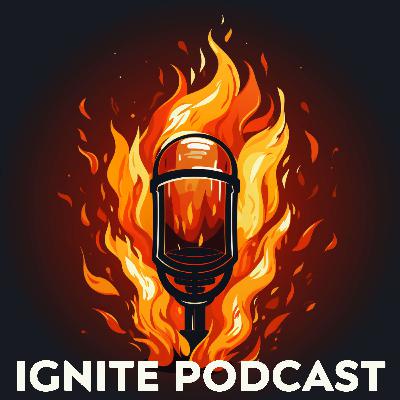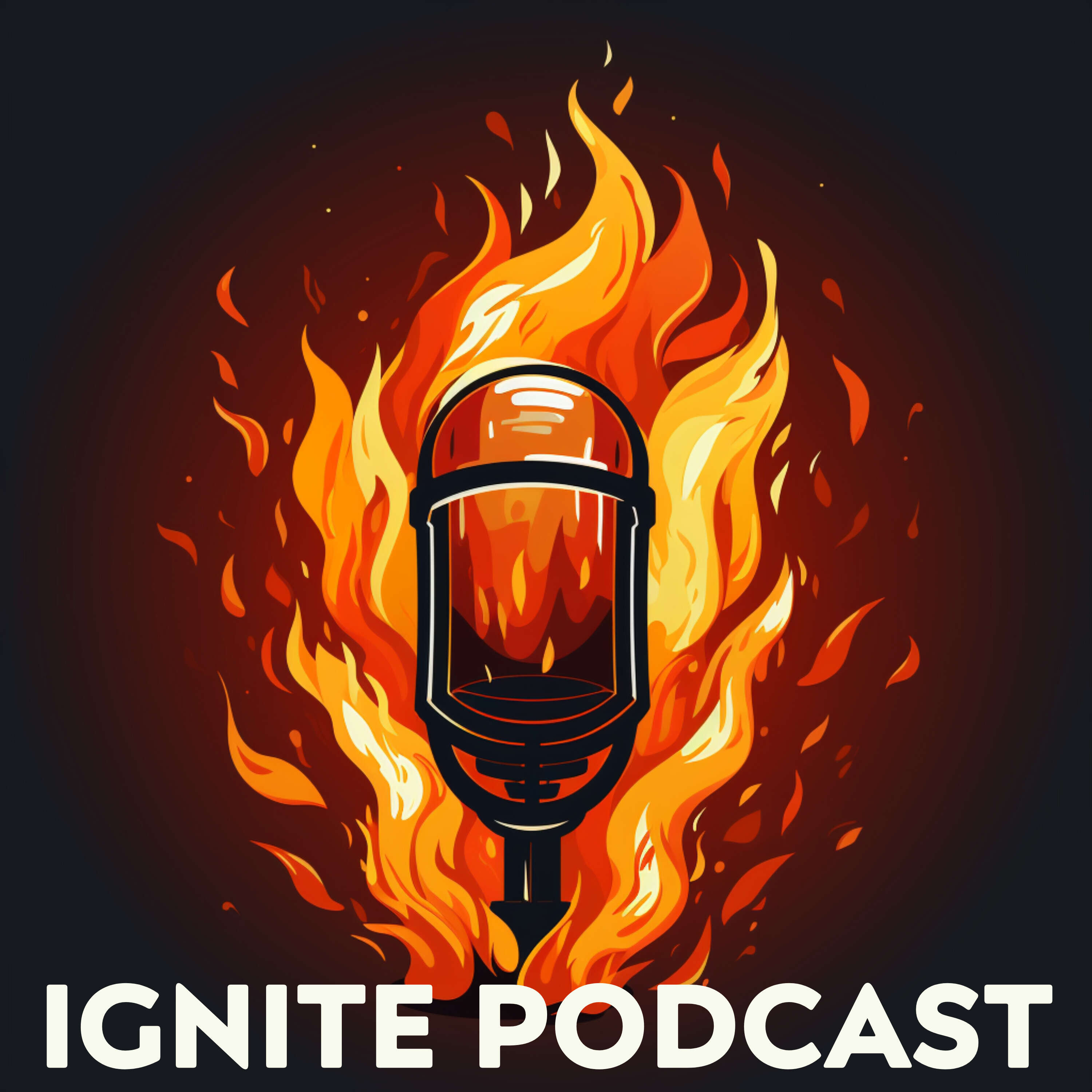Ignite Startups: Eric Ries on Lean Startup and Building Mission-Driven Companies | Ep200
Description
When Eric Ries wrote The Lean Startup more than a decade ago, he gave entrepreneurs a framework that transformed how companies are built. Instead of relying on intuition, massive funding rounds, and long development cycles, Ries urged founders to test, learn, and iterate rapidly. The “minimum viable product” (MVP) became standard practice, and validated learning became the new mantra for Silicon Valley and beyond.
But Eric’s story — and his mission — go far beyond Lean Startup. In this conversation, he reflects on his journey from early startup failures to reshaping entrepreneurial thinking, and how he’s now focused on solving an even bigger problem: the short-termism that plagues public markets. His work with the Long-Term Stock Exchange (LTSE) aims to rewire incentives for companies, investors, and boards to prioritize mission, innovation, and sustainability over quarterly earnings.
Here’s a breakdown of the key themes and insights from the discussion.
From Early Failures to Lean Startup
Eric’s passion for computers began as a kid tinkering with floppy disks and programming. By the time he discovered startups during the dot-com boom, he was hooked. But his first companies failed — often spectacularly. These experiences forced him to question the “best practices” of Silicon Valley and ultimately led him to experiment with a different approach: faster product releases, customer involvement from day one, and a scientific mindset for building companies.
At the time, these ideas were considered bizarre. Investors pushed back, due diligence experts dismissed him, and even co-founders wondered if he was pushing things too far. But the evidence was undeniable: startups that embraced experimentation and customer feedback were outpacing those stuck in multi-year waterfall product cycles.
That approach became the foundation of The Lean Startup — a book that spread globally, influenced millions of founders, and became a staple of startup culture.
Scaling Lean: The Startup Way
After the success of The Lean Startup, Eric found himself advising not only startups but also Fortune 500 companies, governments, and nonprofits. This led to his second book, The Startup Way, which applied lean principles inside large organizations. The challenge wasn’t just building something new but sustaining innovation at scale.
He describes it as a “backstage pass to business,” where he saw firsthand how vast the world of commerce is compared to the relatively small startup ecosystem. Even in 2025, many companies are still only beginning to adopt digital transformation or rethink how they innovate.
Why Short-Termism is Killing Innovation
As Eric worked with companies that scaled from garage startups to multi-billion-dollar enterprises, he noticed a disturbing trend: nearly all of them eventually succumbed to short-term thinking.
Executives cut R&D to meet quarterly numbers. Boards prioritized stock price over customer service. Even beloved brands lost their sense of purpose after going public.
He calls it a tragedy of incentives: when leaders are rewarded for short-term stock pops, long-term investments and innovation get starved. One striking example: airlines like Virgin America, once loved by customers, were sold against founders’ wishes because public markets demanded it.
The baggage handlers Eric met understood the problem better than policymakers: “Once you go public, you’re for sale whether you want to be or not.”
The Long-Term Stock Exchange (LTSE)
Eric realized he couldn’t just write about the problem — he needed to fix it. So he launched LTSE, a fully regulated national securities exchange designed for companies that want to commit to long-term governance and incentives.
Unlike NYSE or NASDAQ, LTSE requires companies to outline how they will align boards, employees, and investors with long-term priorities. Even modest early changes have shown measurable results: companies listed on LTSE attract more long-term investors and begin shifting away from short-term traders.
Eric’s ultimate vision is to build a system where mission-driven companies can thrive without being derailed by quarterly earnings pressures.
Lessons from Costco and Novo Nordisk
Two case studies stand out in Eric’s philosophy of “mission-controlled companies”:
* Costco: Despite being criticized for poor “governance” ratings, Costco has outperformed competitors like Kroger by sticking to its mission of serving customers, even keeping its famous $1.50 hot dog for 40 years. Its governance fortress protected it from short-term investor attacks and preserved its long-term culture.
* Novo Nordisk: Structured as a foundation-owned company since the 1920s, Novo Nordisk rejected a lucrative merger in the early 2000s because it didn’t align with its scientific mission. A few years later, their long-term bet on GLP-1 drugs paid off, making them the largest company in Europe and one of the most profitable in the world.
Both examples prove that aligning governance with mission can create massive shareholder value — far more than chasing quarterly gains.
The AI Bubble — and Why It Still Matters
Eric also shared his perspective on AI. He acknowledges the bubble-like behavior: inflated valuations, unsustainable hype, and startups built on shaky assumptions. But, like the telecommunications boom, he believes AI is both a bubble and a genuine technological revolution.
The key? Recognizing that experimentation is still required, much like Edison’s thousands of failed attempts before perfecting the light bulb. The future will depend on how well we channel AI into trustworthy, mission-driven companies — not just hype-driven valuations.
Advice for Founders and Investors
For today’s entrepreneurs, Eric emphasizes:
* Define your purpose early. Your governance documents may already undermine your mission if you’re not careful.
* Don’t fall into the short-term trap. Mission-controlled structures help companies endure.
* AI isn’t a silver bullet. Use it to enhance experimentation, but don’t let it replace critical thinking.
* Investors should focus on love, not hype. The best investors are those founders call first because they deeply understand and support them.
Looking Ahead
Eric admits the future feels uncertain. We’re living in a time of immense technological change and social turmoil. But history shows that dark periods often precede new eras of prosperity and creativity.
His hope: that we can use tools like AI, governance innovation, and mission-driven entrepreneurship to build companies — and societies — that maximize human flourishing. 👂🎧 Watch, listen, and follow on your favorite platform: https://tr.ee/S2ayrbx_fL 🙏 Join the conversation on your favorite social network: https://linktr.ee/theignitepodcast
Chapters: 00:01 – Welcome & Ignite’s 200th Episode with Eric Ries
01:28 – Eric’s origin story: growing up with computers in a family of doctors
03:23 – Early startup failures and hard lessons in Silicon Valley
07:10 – Countercultural ideas that sparked the Lean Startup method
10:43 – Learning from Steve Blank and building a startup theory
12:28 – Naming and launching the Lean Startup movement
14:06 – From The Lean Startup to The Startup Way: scaling ideas inside large companies
16:32 – Observations on short-termism across corporations
18:25 – Virgin America, Wall Street, and the spark for the Long-Term Stock Exchange (LTSE)
21:38 – How LTSE works and its principles-based listing standards
24:55 – The hidden cost of quarterly reporting on markets
26:45 – Founder-led vs. traditional governance practices
27:36 – Costco’s governance “fortress” and lessons in long-termism
33:53 – Why mission-driven companies outperform short-term players
37:32 – Designing “mission-controlled” companies for the future
41:20 – The AI boom: bubble behavior vs. true disruption
46:41 – The coming societal impact of AI and institutional change
48:08 – Advising early-stage founders on purpose, trust, and governance
53:50 – Lessons from Novo Nordisk: mission structure driving $500B+ value
59:32 – Anthropic’s governance model and mission boards for AI
01:02:23 – Investing as an LP and building First Momentum Capital
01:05:32 – Audience Q&A: U.S. innovation, AI’s role in Lean Startup, and new paradoxes
01:11:32 – Looking ahead: Eric’s hopes and concerns for the next decade
01:12:37 – Closing thoughts & rapid-fire wrap-up
Transcript
(00:01:07 ): Hey, everyone. Welcome back to the Ignite Podcast. Today, we’re thrilled to have the one and only Eric Ries on the mic. He is the author of The Lean Startup. And if you listen to this podcast, you should probably know that. The founder of the Long-Term Stock Exchange and the host of The Eric Ries Show. His work has helped a generation of founders move faster with less waste. And lately, he’s been pushing on something bigger, how to build trustworthy, mission-driven companies that compound for decades. Thanks for coming on, Eric.
(00:01:30 ): Hey, thanks for having me. And this is the very special 200th episode. So I appreciate you being the very special 200th guest of the Ignite Podcast. First of all, on 200 episodes. First of all, that’s an honor. I’m very happy to be chosen as a special guest, but more importantl






